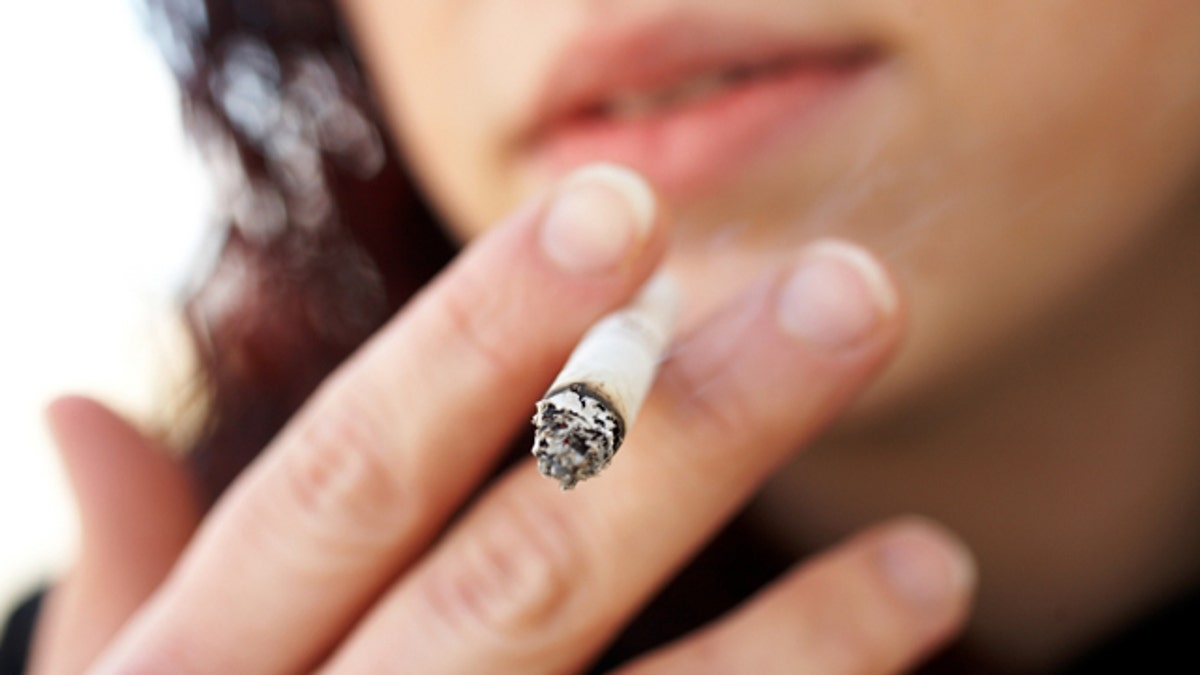
Teens who are exposed to secondhand smoke may be at a higher risk of hearing loss, researchers have found.
The findings, which one expert called "surprising," can't prove that secondhand smoke causes hearing loss. But the link is just one more reason to make sure that non-smokers, especially kids, are protected from cigarette smoke, researchers said.
"We need to increase focus on this population at risk (for hearing loss) during adolescence who now have risk factors such as noise factors or secondhand smoke," said Dr. Anil Lalwani, who worked on the study.
Secondhand smoke has been tied to a range of health problems in kids, from respiratory infections to behavioral problems, although there is still no ironclad proof that smoke is at the root of all of these problems.
Lalwani and his colleagues from New York University Langone Medical Center thought tobacco smoke might have an effect on the blood flow in kids' inner ear, which is important for hearing.
They analyzed data from a U.S. national health survey involving about 1,500 adolescents age 12 to 19. All of those kids had hearing tests in both ears to see if they had any trouble picking up on sounds at different pitches. Researchers also tested their blood for levels of cotinine -- which forms when the nicotine from cigarette smoke breaks down.
A very high level of cotinine suggests that a teen is a smoker, while a lower level means that kid is probably exposed to secondhand smoke.
Teens whose cotinine levels told researchers they spent a lot of time around smokers were more likely to have hearing loss at the lower frequencies of human speech than those without exposure to cigarette smoke.
About 12 percent of the exposed kids had mild to severe hearing loss in one ear, compared to less than eight percent of kids without smoke exposure.
The findings, published in Archives of Otolaryngology -- Head & Neck Surgery, also hinted that the same may be true for high-pitch sounds, although statistical tests showed that difference might have been due to chance.
"It's kind of surprising," said Dr. Joseph DiFranza, who has studied secondhand smoke at the University of Massachusetts Medical School in Worchester.
"We already knew that passive smoking is bad for children," DiFranza, who wasn't involved in the new research, told Reuters Health. "This just piles on another reason" to make sure kids aren't exposed to secondhand smoke.
While other studies haven't looked for a link between secondhand smoke and hearing loss in kids, Lalwani said adults who smoke are known to be at higher risk of hearing loss themselves.
He said it will be interesting going forward to see if hearing loss in kids exposed to secondhand smoke could also explain some of the other problems seen in these kids, such as behavioral issues. For example, Lalwani said, kids who can't hear a teacher's instructions are more likely to be labeled as having attention deficit hyperactivity disorder, or ADHD.
He added that doctors should be on the lookout for hearing problems in teens with secondhand smoke exposure. That's especially important because kids in this study with hearing loss usually didn't know they had a problem -- but lack of hearing could be affecting their learning and speech skills, the researchers said.
Still, "the degree of hearing loss that they found in the study wasn't enough to say all kids should be tested for it because their parents smoke," said DiFranza.
The researchers said that it's hard to tease out the effect of secondhand smoke exposure during childhood and adolescence from when kids were developing in the womb. But the new study suggests that "it's very toxic to the auditory system," Lalwani told Reuters Health.
"We need to alter our public policies to protect the innocent bystanders who would otherwise be exposed to smoke," he added.
Luca Cucullo, of Texas Tech Health Sciences Center, told Reuters Health in an email that "the need for prevention and health education at home as well (as) at school is the main take home message."
